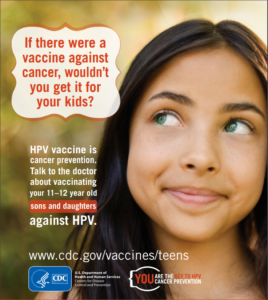Mississippi’s family physicians need to know as much as they can about teen vaccination and the role they play in it. In fact, a majority of family physicians may be unaware of Mississippi’s low teen vaccination rate or, importantly, how influential a physician’s recommendation is when it comes to parents vaccinating their children.
 More than 80 physicians attended the MAFP’s Highlight on Vaccinations 4 Teens panel discussion in July 2017 that addressed the importance of the four CDC-recommended vaccinations for teens. The presentation, held during the Annual Meeting in Florida, was made possible by a grant from the American Academy of Family Physicians Foundation’s Family Medicine Philanthropic Consortium with support from Sanofi Pasteur.
More than 80 physicians attended the MAFP’s Highlight on Vaccinations 4 Teens panel discussion in July 2017 that addressed the importance of the four CDC-recommended vaccinations for teens. The presentation, held during the Annual Meeting in Florida, was made possible by a grant from the American Academy of Family Physicians Foundation’s Family Medicine Philanthropic Consortium with support from Sanofi Pasteur.
Mississippi’s teen vaccination rates are dismally low, despite the Centers for Disease Control’s recommendations that all teenagers have the HPV, MCV4, Tdap and influenza vaccines. In 2015, our state had some of the lowest teen vaccination rates in the nation, but there is a remedy for low vaccination rates: a conversation with the teen’s family physician. Studies show parents and teens who are advised by their physician to get vaccinated are twice as likely to do so.
According to the results of the post-presentation survey, the information was something Mississippi physicians needed to hear. Eighty percent of attendees said they were not aware of the low adolescent vaccination rates in the state, and 80% of attendees said they were more likely afterward to emphasize the need for vaccinations with their teen patients.
Three panelists – all Mississippi physicians – provided anecdotal and evidential research on how to increase vaccination rates in one’s practice. Their practical examples of conversations with parents spurred a discussion among those present about how to frame the need for vaccinations when seeing adolescents.
 Panelist Dr. Sandor Feldman, infectious disease specialist and retired Professor Emeritus of Pediatrics at the University of Mississippi Medical Center, presented staggering statistics about HPV. Fully 100% of vaginal, penile and rectal cancers are caused by HPV, and greater than 90% of cervical, anal and oropharynx cancers are also caused by the virus. This emphasizes, Dr. Feldman said, the need for vaccination during the teen years, when efficacy rates are highest.
Panelist Dr. Sandor Feldman, infectious disease specialist and retired Professor Emeritus of Pediatrics at the University of Mississippi Medical Center, presented staggering statistics about HPV. Fully 100% of vaginal, penile and rectal cancers are caused by HPV, and greater than 90% of cervical, anal and oropharynx cancers are also caused by the virus. This emphasizes, Dr. Feldman said, the need for vaccination during the teen years, when efficacy rates are highest.
Dr. Feldman also said recall notices are shown to be effective when reminding parents and teens of the need for follow-up dosages. For example, CDC recommends HPV to be given to girls and boys aged 11 and a follow-up dosage to be given at least 5 months later.
Panelist Dr. Emily Landrum, chief resident at North Mississippi Medical Center Family Medicine Residency Program in Tupelo, discussed the FMRP’s 2016-17 Senior Immunization Award which enabled them to focus on increasing influenza vaccinations among their senior adult patients.
After first mailing out reminder postcards to patients age 65 and over, the FMRP team created a Flu Vaccine Tracking sheet that followed the patient throughout each office visit and served as a reminder to the patient and staff of the need for the influenza or pneumococcal vaccine. Staff were also coached on how to address patient vaccination concerns and overcome patient fears.
In the course of a year, more than 3,500 patients completed the Flu Vaccine Tracking sheets. The end result was positive. The clinic’s influenza vaccination rates rose from 57.5% to 69.3% in the span of one year, and the pneumococcal vaccination rate increased from 67% to 73.6%.
Panelist and self-defined “vaccination warrior” Dr. Katherine Patterson of Indianola talked anecdotally with physicians who were present, saying that she never tries to alarm patients with scary statistics. She said she firmly reminds patients that both the CDC and she recommend that the teen be vaccinated at the recommended age. Dr. Patterson said she never hesitates to answer patient concerns with facts but tries to emphasize the routine nature of the vaccination.
Another tool emphasized during the discussion is the AAFP’s Vaccinations 4 Teens toolkit, accessible by the MAFP’s website home page. Full of informational videos and printable materials, the online toolkit provides customizable postcards to mail out, sample social media posts, and statistics for physician education.
